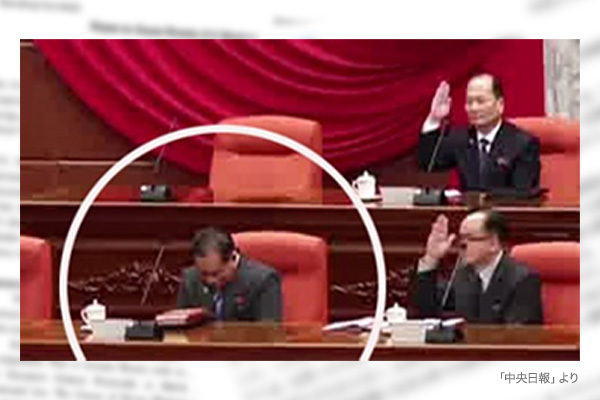Military tensions are rising again on the Korean Peninsula. Amid tensions in 2017, then U.S. President Donald Trump exerted military pressure on North Korean dictator Kim Jong Un who continued provocations through a nuclear test and missile launches. This time, South Korean President Yoon Suk Yeol has shown his preparedness to have a fight with the North. How high will tensions rise? North Korea may launch a local attack on some locations such as Yeonpyeong Island close to the North-South military boundary this year, sources said.
Pyongyang dismissed military leader over South Korean drones’ intrusion
In 2022, North Korea fired as many as 90 missiles and legalized a preemptive nuclear strike. On November 18, the country launched a Hwasong-17 intercontinental ballistic missile. While the ICBM was launched in a lofted orbit at a higher angle than usual, its warhead successfully reentered the atmosphere, according to Western military sources. This meant that the North almost acquired a capability to make nuclear attacks on the U.S. mainland. Nevertheless, the U.S. Biden administration made little response.
North Korea’s Kim harshly provoked the South late last year. Five North Korean drones crossed into South Korea, including one that entered a no-fly zone near the Presidential Office in central Seoul. But South Korea failed to shoot down any of them. At a plenary meeting of the North Korean Workers’ Party Central Committee between December 26 and 31, Kim defined the South as a clear enemy and declared the mass production of tactical nuclear weapons for operational use. On December 31 and January 1, the North fired short-range ballistic missiles in the direction of the Sea of Japan.
In response, South Korea’s Yoon rejected predecessor Moon Jae In’s appeasement policy towards the North and vowed to retaliate against North Korean nuclear intimidation and military provocations. In fact, on December 26, when the North Korean drones crossed into the South, at least two South Korean reconnaissance drones flew northward beyond the military demarcation line. But North Korean forces failed to respond to the flights over Pyongyang, the sources said. At the plenary meeting of the Central Committee on December 31, top military leader Marshal Pak Jong Chon was dismissed as vice chairman of the party’s Central Military Commission as he dropped his head on a tiered stand. A major reason for his dismissal was the failure to respond to the reconnaissance drones, the sources said.
On December 28, Yoon said: “We should definitely retaliate against any provocation by North Korea… We must not fear or hesitate because North Korea has nuclear weapons.” On January 1, he expressed his readiness to have a fight. He has also begun to consider abolishing the previous administration’s military agreement with North Korea and launched preparations to resume the South Korean military’s loudspeaker broadcast at the military demarcation line, which was banned under the agreement.
Kim admitted economic hardship
Kim’s published report to the plenary meeting of the Central Committee had an extremely limited reference to economic construction achievements but included 12 passages admitting hardship. It described 2022 as filled with unprecedented challenges and threats and forecast that struggle in the New Year would be accompanied by uneasy strains and difficulties.
The description reflected party cadres’ and people’s real feelings that Kim could not ignore. Serious food shortages are rampant throughout the North. After last year’s unprecedented lean crop, people died of hunger in northern provinces Ryanggang, North Hamgyong and South Hamgyong. Even the military and security organizations could secure only 60% of their rice and corn requirements during the autumn harvest season, indicating that their food stockpiles would be exhausted by May or June this year.
In 2023, dark clouds of potential local clash and severe famine are looming on the Korean Peninsula.
Tsutomu Nishioka is a senior fellow and a Planning Committee member at the Japan Institute for National Fundamentals and a visiting professor at Reitaku University. He covers South and North Koreas.


